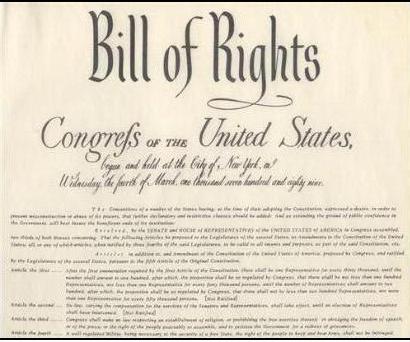At WiseGEEK, we're committed to delivering accurate, trustworthy information. Our expert-authored content is rigorously fact-checked and sourced from credible authorities. Discover how we uphold the highest standards in providing you with reliable knowledge.
What are the Different Types of Due Process Rights?
There are a number of different due process rights, typically indicated by the laws that govern a country. In many countries, the term “due process” may not even be used, yet there are still some laws that indicate the rights of a person and how those rights may be taken away. Of course, it is typically up to the courts of a country to ensure that these laws are properly enforced, and different nations may view such due process with varying levels of importance. In the US, due process rights are often considered one of the most important aspects of American law and these rights have been upheld repeatedly both on a federal and state level.
While different countries can have greatly differing views on due process rights and how those rights are both extended to the people and defended by the courts, in general these rights indicate how a person can be deprived of his or her other rights. For example, in many areas the right of a person to live is often either explicitly or implicitly dictated by the laws of a country. Many of these countries, however, may also have capital punishment that indicates that a person convicted of certain crimes may be put to death for such crimes. Due process rights would indicate the way in which a person may be found guilty of such a crime, and therefore lose his or her right to live.

In the US, due process rights are established and explicitly stated by both the Fifth Amendment and the Fourteenth Amendment to the US Constitution. The Fifth Amendment indicates the due process rights of a person at the national level, while the Fourteenth Amendment extends those rights to US citizens at a state level as well. This means that the rights of a person to proper due process under US laws exist regardless of whether that person is being tried in a federal or state courtroom.

The due process rights of a US citizen are clearly stated within these two amendments to the US Constitution. These rights include the right to indictment by a grand jury before a trial, freedom from double jeopardy under the law, a person’s freedom from compulsion to testify against himself or herself, and that due process of law must be followed before a person can be “deprived of life, liberty, or property.” Many of these due process rights stem from earlier traditions in English laws, yet in some respects they surpassed the rights allowed by earlier laws in the UK. International human rights laws often indicate similar due process methods that must be followed in order to deprive someone of his or her natural rights.
AS FEATURED ON:
AS FEATURED ON:












Discuss this Article
Post your comments